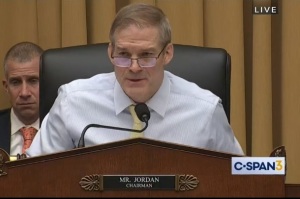Language in the Pulpit
Over the past couple of years there has been a lot of passionate discussion about inappropriate language in the pulpit. Of course some preachers do use language they shouldn't when preaching the word, while others aren't using language they should (maybe we'll make another post on that one).
I hope we can agree that God does care about the words we use. Positively, we are called to speak the truth with grace, correcting and reproving one another when needed, and encouraging one another as the day of the Lord draws near. On the negative side, God forbids the misuse of words by way of blasphemy, heresy, lies, gossip, slander, and flattery. These are, I think, relatively easy to spot and most of us would agree such speech has no place on the tongues of God's people.
But, I think more needs to be said. In fact, more has been said. Unfortunately, it has often been little more than spoof texting without real dialog. I'd like us to consider a few of the popular passages that are relevant to this issue and find some direction.
Let no corrupting talk come out of your mouths, but only such as is good for building up, as fits the occasion, that it may give grace to those who hear.
Eph 4:29
Corrupting talk is rotten, worthless, and unfit for use. The word is being used in contrast to words that are useful for building up and extending grace to others. In a practical sense we must not use words that needlessly tear others down, or encourage others to sin.
Let there be no filthiness nor foolish talk nor crude joking, which are out of place, but instead let there be thanksgiving.
Eph 5:4
Filthiness is ugly, immodest, and inappropriate language. This is largely contextually determined. Some things are entirely appropriate for a conversation between my wife and me, but would be inappropriate between a us and a child. I can speak one way to a man, but would choose my words differently when talking with a woman. Filthiness is ugly talk that is "out of place." Foolish talk is unwise, unprofitable speech, and crude joking is a quick wit (a good thing) used for nothing more than fruitless joking (get over yourself).
But now you must put them all away: anger, wrath, malice, slander, and obscene talk from your mouth.
Col 3:8
Obscene talk is shameful, and perhaps abusive speech.
Paul's point regarding godly and ungodly speech is not that some words are never to be used, but that the spiritual and social impact of our words matter, and we must use our words for the glory of God and the good of people.
Now some people use these verses to call words they find distasteful out of bounds. Others ignore these verses and speak without much serious thought about the context or true usefulness of their words. I'd like to offer a little pastoral advice to all Christians, especially those who labor in teaching and preaching.
My advice is simple. Be careful with your words. You only have so many to use in your upcoming sermon, so choose them wisely. Those words may comprise your very last sermon. Have you considered that? What words will be most useful in communicating truth, and the gospel? What words will help you best uncover man's hypocrisy, stubbornness and idolatry while pointing them to the hope of the life, death and resurrection of Jesus? Your words should be appropriate for your audience and context, they should clarify truth, expose error and exalt Jesus. If you are a teacher, then you are not a child, so don't speak like one. Be thoughtful, provocative, and clear. Know your audience. Do not use words that will interfere with the message you are called by God to communicate, but do not neglect to use words that will arrest their attention and display the significance of the message.
Of course, I welcome your thoughts on the subject in the comments. Stick to the issue, my friends. Choose your words wisely, and make the discussion profitable.




























